Analysing the key defensive statistics from the group stage of EURO 2024
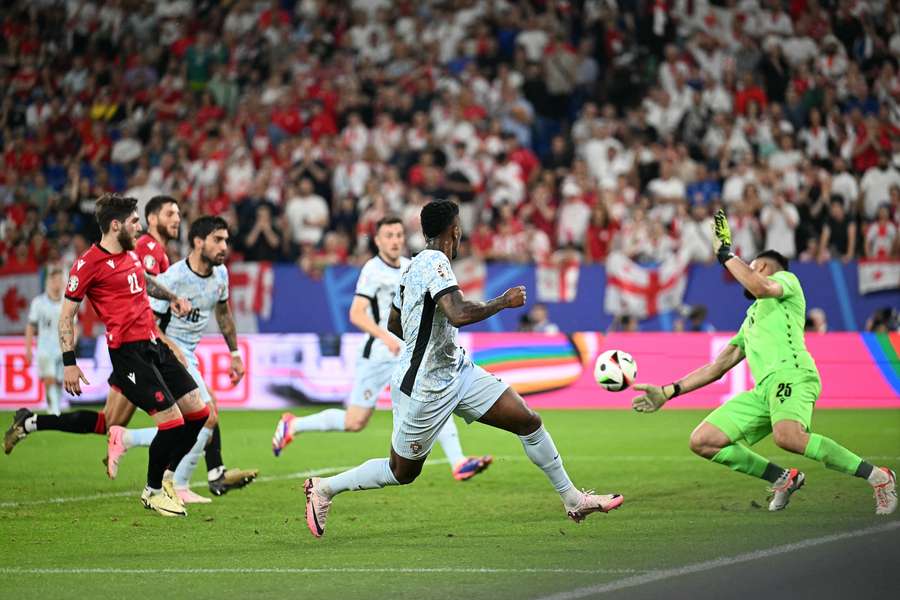
As the adage goes: 'Attacks win games but defences win championships' - we couldn't open this article any other way. The famous phrase coined by Phil Jackson (architect of two NBA championship dynasties) helps explain the importance of defending well, especially for those who aspire to higher levels in sport.
Primarily, EURO 2024 has stood out for its offensive side. In the 36 games already played, 81 goals have been scored (an average of 2.25 per game). Looking at the results, only four games (Netherlands vs France, England vs Slovenia, Denmark vs Serbia and Ukraine vs Belgium) have been goalless.
Given this, it comes as no surprise that only one team hasn't conceded in the group stage: Spain. Against Croatia, Italy and Albania, La Roja proved impenetrable (they used two goalkeepers in Unai Simon and David Raya) and that's also why they were the only team to finish with nine points.
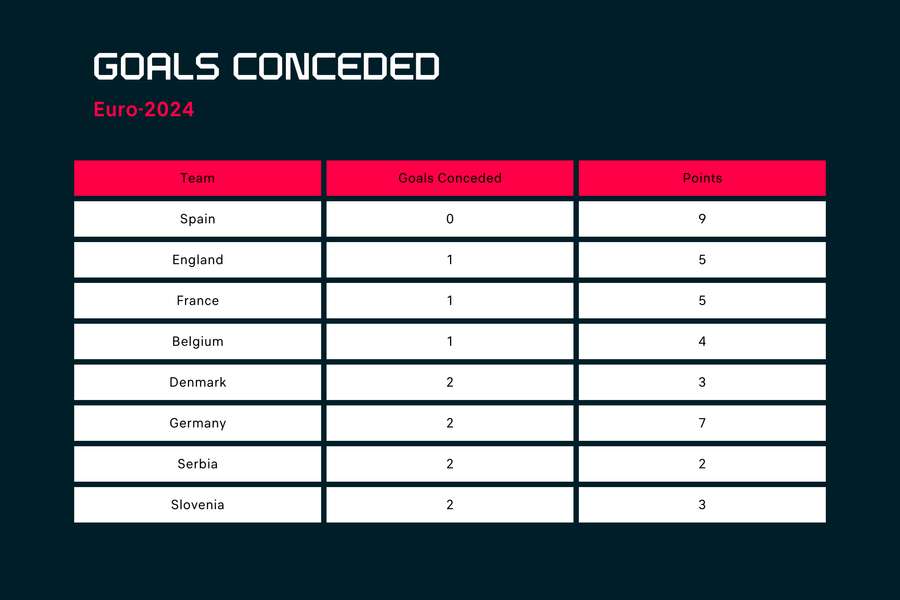
Of the eight best defences at the Euros so far, only Serbia failed to advance. Slovenia managed to do so but as one of the best third-placed teams. Spain, England and Germany topped their groups.
At the other end of the table, Scotland conceded the most goals (seven), largely because of their 5-1 defeat to Germany in the opening round. Poland and Croatia complete the podium with six conceded.
Of the eight worst defences, only Turkey and Georgia are in the last 16.
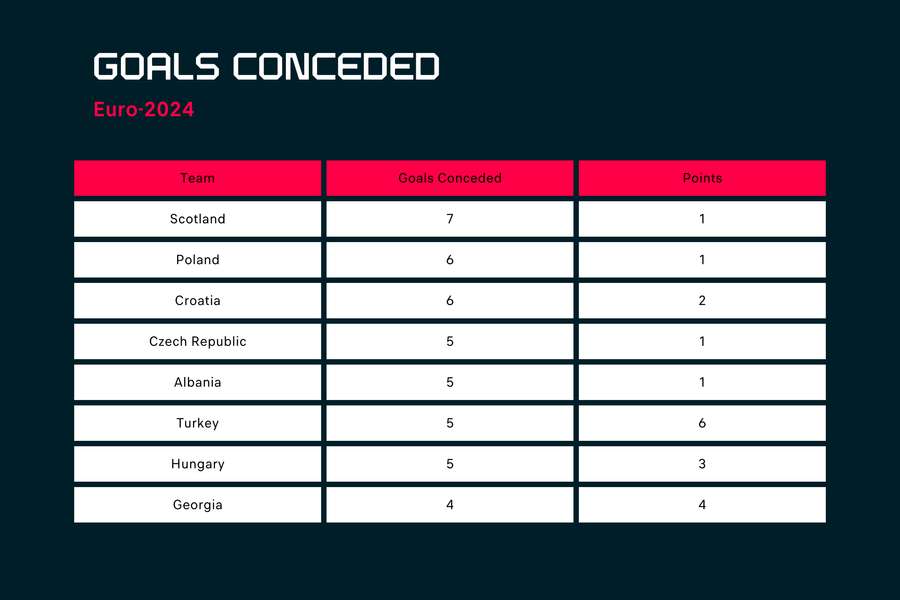
From Diogo Costa to Giorgi Mamardashvili
Defending well is often synonymous with a goalkeeper having little to do. In Portugal's case, unfortunately, you can't say that. Diogo Costa was the goalkeeper (who played all three games) who made the fewest saves in the group stage (four) but conceded three goals. This is in line with the statistics, which indicate that the seven shots he faced should have yielded 2.7 goals. In other words, he didn't make a difference in goal.
On the opposite end of that spectrum is Mamardashvili. The Valencia and Georgia goalkeeper has been one of the highlights of the tournament and is proving that he is one of the best in his position. In three games he has saved 20 shots. According to Opta data, those 20 shots should have resulted in 7.5 goals, but he only conceded four. He also kept a clean sheet against heavyweights Portugal.
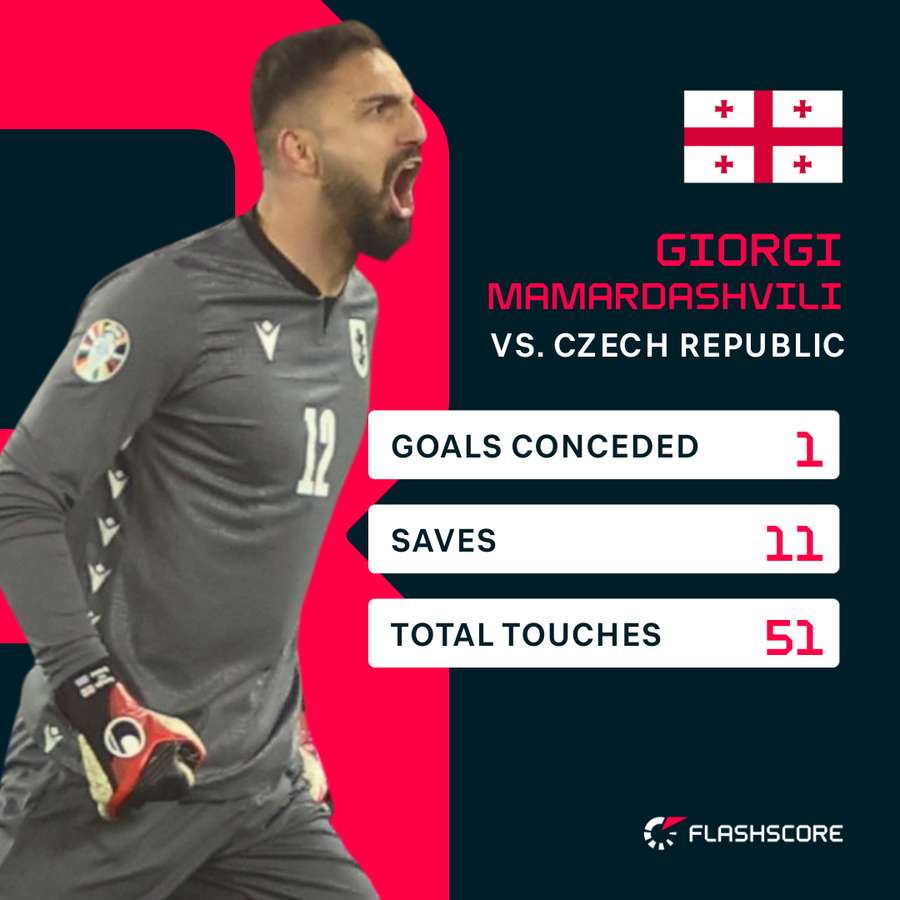
Of the 29 goalkeepers used, 13 failed to keep a clean sheet in the matches they played. Of those, Yann Sommer (Switzerland), Gianluigi Donnarumma (Italy), Patrick Pentz (Austria), Jindrich Stanek (Czech Republic), Thomas Strakosha (Albania), Dominik Livakovic (Croatia) and Angus Gunn (Scotland) were the only ones who played in all three group games.
Hard work pays off
Defending will be one of a player's least favourite things. When everyone dreams of a professional career, they think about scoring goals, doing marvellous things with the ball, not chasing after one. However, defensive selflessness also has its merits.
Georgia was the team that recovered the most balls (134), made the most tackles (55), won the most tackles (27) and made the most clearances (100). A feat for Willy Sagnol 's team that allowed them to reach the last 16 without conceding a goal against Portugal.
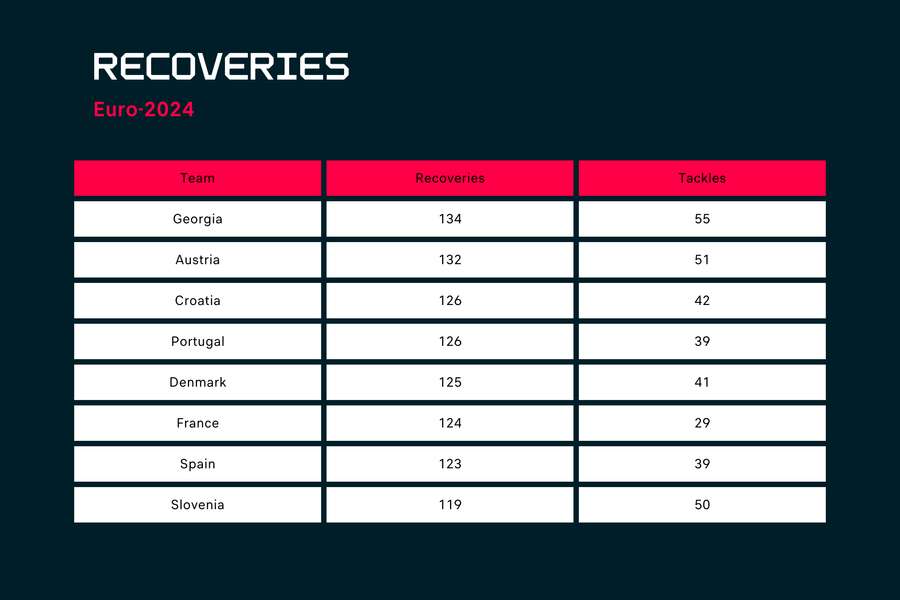
In second place for balls recovered (132) and tackles made (51) was none other than Austria. Ralf Rangnick is one of the ideologues of 'gegenpressing' and put Das Team through its paces to finish ahead of the Netherlands and France in the group stage.
Of the eight teams that recovered the most balls, only Croatia stood out and didn't progress to the knockout phase.
Slovenia's leader
Jaka Bijol has to be recognised in this piece. The Udinese centre-back has been Slovenia's defensive leader and stands out for the way he has repelled opposition attacks.
With 27 clearances, the centre-back stands out in this area and by a wide margin. Guram Kashia from Georgia is next with 21, while Virgil van Dijk (Netherlands) and Jan Bednarek (Poland) round off the podium with 15.
Bijol will need to be at the top of his form if he wants to stop Portugal from scoring and progressing to the quarter-finals.
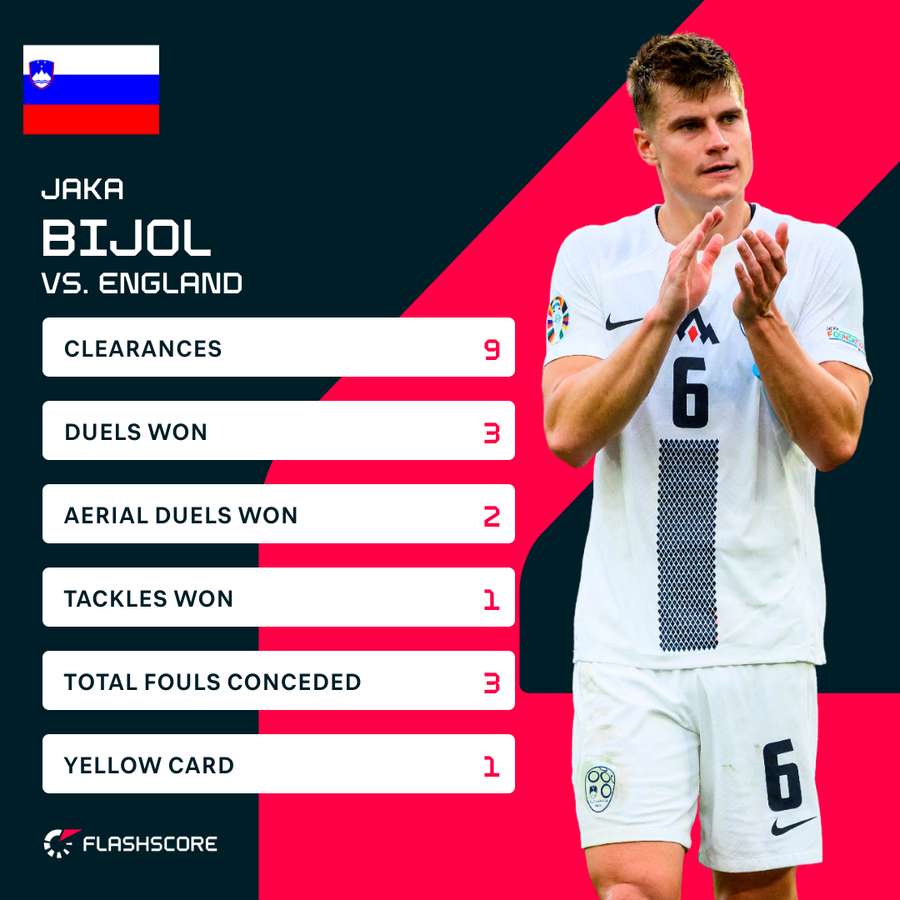
On the subject of individual defensive actions, credit must be given to Nico Seiwald (Austria), who attempted the most tackles in this group stage - a total of 13. Strahinja Pavlovic, the future of Serbia's defence, was the best at stopping dribbles (nine) and Josip Sutalo(Croatia) made the most interceptions, with 13.
Figures that help explain the group stage of a European Championship that has been marked by many goals, but where defences are also having a big influence. After all, it's no coincidence that we consider Spain to be contenders and Georgia to be the great revelation.

